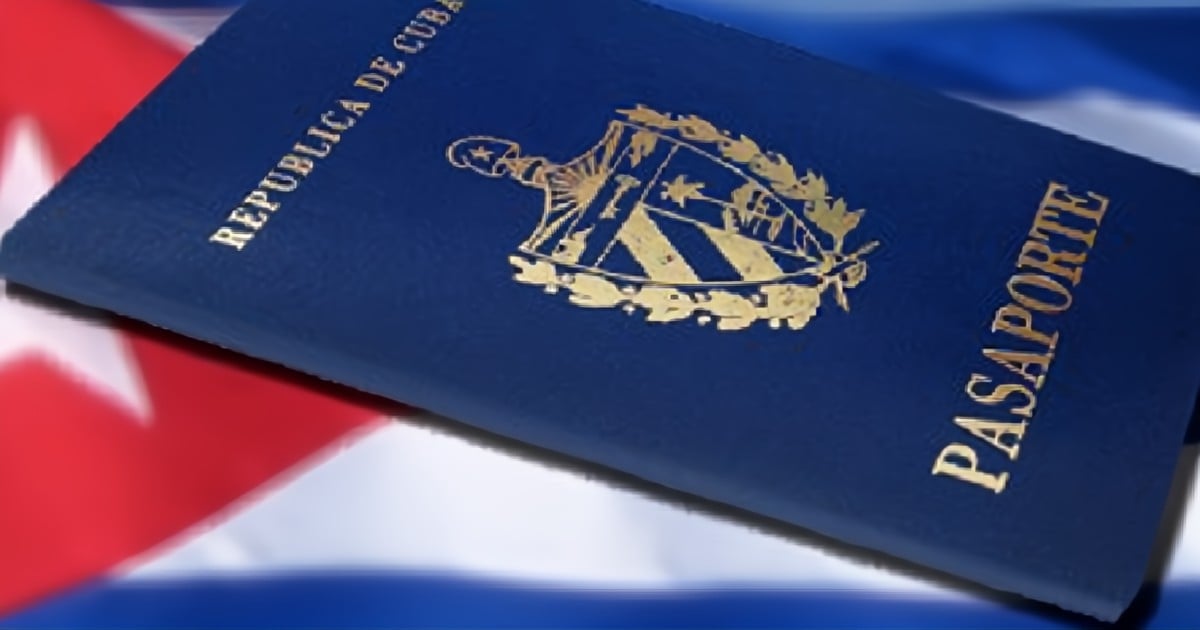
The death on Sunday of Maikel Herrera Bones, a recognized activist and political opponent who dedicated part of his life to defending human rights on the Island, has brought the requirements that Cubans must meet to obtain a humanitarian visa into discussion.
Herrera Bobes died while waiting for this request to address his delicate health condition outside of Cuba. Since 2012, Herrera had been living with HIV, which significantly deteriorated his health in recent months. According to reports and complaints made by the affected individual himself, his condition worsened due to a lack of proper medical attention, which he attributed to his political stance.
There have been other cases that have gained visibility through social media to achieve their goals. The most well-known case is that of Amanda Lemus Ortiz, a girl who improved as a result of the surgery and treatment she received in Spain.
In general, the humanitarian visa has become a key tool for those looking to provide support to family or friends in emergency situations. In the case of Cuba, many families face challenges in transporting sick individuals or those in extreme conditions to other countries to ensure they receive medical care or shelter. This process, while vital, is surrounded by specific requirements that vary depending on the destination country.
What is a humanitarian visa?
The humanitarian visa allows for the temporary entry of vulnerable individuals into another country. It is granted to those who require urgent medical attention, are victims of natural disasters or armed conflicts, or face extreme conditions. In the Cuban context, it is primarily requested for medical treatments that are not available on the island or in cases of urgent necessity.
Who can apply for it?
A humanitarian visa can be applied for by direct relatives living abroad, humanitarian organizations, or, in exceptional cases, government entities. It can also be directly requested by the beneficiary, depending on the immigration laws of the country.
Although the requirements vary by country, some common ones include:
- Medical or humanitarian justification.
- Acceptance letter from a hospital or clinic in the destination country.
- Personal documentation of the applicant and the beneficiary.
- Proof of economic solvency.
- Consular forms and fees.
- Steps to process it from Cuba
- Contact the embassy of the destination country to confirm the visa requirements and procedures.
- Gather the necessary documentation, including medical reports and certificates.
- Complete the application form online or at the embassy.
- Submit the application and attend an interview, if required.
- Wait for the response, which may take between 2 and 8 weeks.
Countries that grant humanitarian visas to Cubans
Some countries are:
- United Statesthrough humanitarian parole.
- Spainfor family reunification.
- Canadathrough international assistance programs.
- Mexicoin medical cases.
- Italyin serious health situations.
Frequently Asked Questions:
How long does the approval take? Between 2 and 8 weeks, depending on the urgency.
What happens if the visa is denied? It is possible to appeal the decision by submitting additional documentation.
Can I accompany the beneficiary? It will depend on the regulations of the destination country and the medical justification.
Final tips:
- Start the process as soon as possible to avoid delays.
- Seek legal advice if you have any questions.
- Maintain regular communication with the appropriate consulate.
The process of obtaining a humanitarian visa from Cuba is complex, but not impossible. With the right documents and a strong justification, it is possible to provide an opportunity for care and refuge to those who need it most.
Frequently Asked Questions about Humanitarian Visas for Cubans
What is a humanitarian visa and what is it used for?
A humanitarian visa allows for the temporary entry of vulnerable individuals into another country. It is used for those who require urgent medical attention, are victims of natural disasters or armed conflicts, or face extreme conditions. In the case of Cuba, it is often requested for medical treatments that are not available on the island or for cases of extreme necessity.
What are the steps to apply for a humanitarian visa from Cuba?
To apply for a humanitarian visa from Cuba, it is necessary to contact the embassy of the destination country to confirm the requirements and procedures for the visa. Then, gather the required documentation, such as medical reports and certificates, complete the application form either online or at the embassy, submit the application, and attend an interview if required. Finally, one must wait for a response, which can take between 2 to 8 weeks.
What documents are necessary to apply for a humanitarian visa?
Requirements may vary by country, but they typically include medical or humanitarian justification, a letter of acceptance from a hospital or clinic in the destination country, personal documentation for both the applicant and the beneficiary, proof of financial solvency, and consular forms and fees.
Which countries grant humanitarian visas to Cubans?
Countries such as the United States, Spain, Canada, Mexico, and Italy offer humanitarian visas to Cubans. The United States provides them through humanitarian parole, Spain allows for family reunification, Canada offers them through international assistance programs, Mexico addresses medical cases, and Italy provides options for serious health situations.
How long does it take to receive a response about the humanitarian visa?
The response regarding the humanitarian visa can take between 2 and 8 weeks, depending on the urgency of the case and the policies of the destination country.
Filed under: